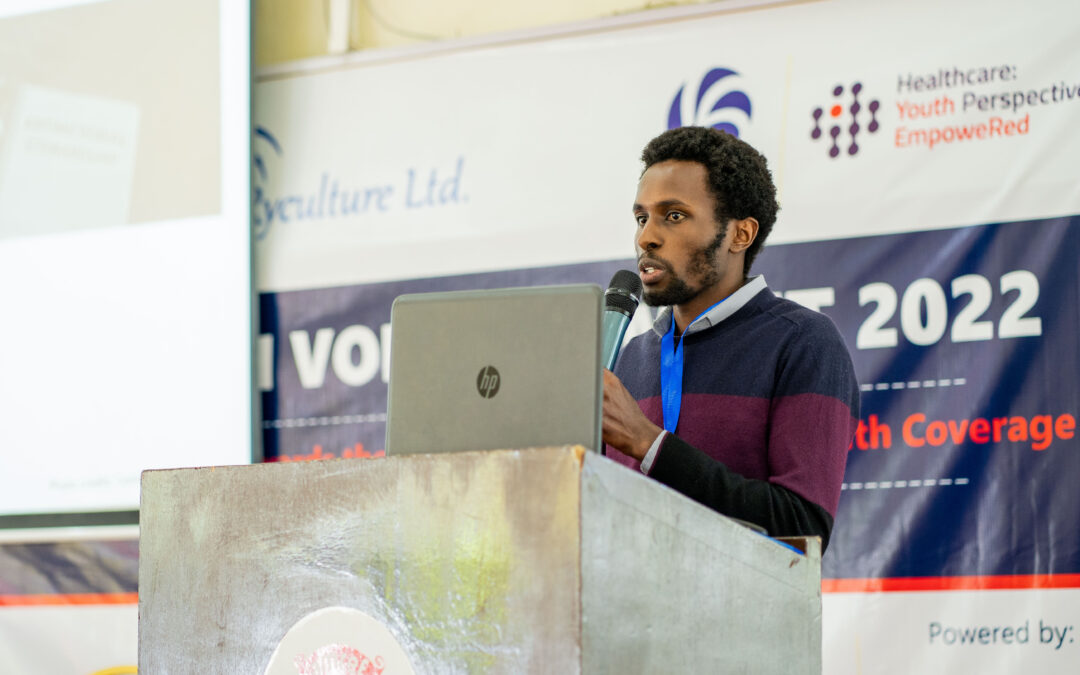“Our AMR Ambassadorial program started in July 2022. It was a program designed for young people passionate about changing the negative narrative about antimicrobial resistance in the African region and the world at large.” – Daniel Waruingi, 2022 PAR Grantee
Young people have an important role to play in the fight against AMR. They are the future leaders, scientists, and healthcare professionals who will shape the way we approach public health issues. They have a unique perspective on the challenges the world is facing. By joining the fight against AMR, young people can help raise awareness of the problem and promote best practices for the responsible use of antibiotics. This is the idea behind the Foundation to Prevent Antibiotic Resistance’s (PAR) early career grant program.
“When I was applying for the PAR grant, I was thinking of a movement of young people working together to champion the fight against antibiotic resistance,” said Daniel Waruingi, a 2022 PAR early career grantee. After receiving the grant Daniel using his SAS-Africa platform organised a program to equip young AMR enthusiasts with the knowledge and skills to combat the menace of AMR in Africa. SAS Africa over the past 6 months has so far organised 32 webinars, created an informational website and increased AMR conversation on social media. So far more than 2000 students have been directly impacted.
The defining angle of Daniels’s project is the focus on young people and students in Africa. Students and young professionals in Kenya, Nigeria, Uganda, Zambia, Tanzania, Ghana, Cameroon, Rwanda, Zimbabwe Burkina Faso, and Namibia have been part of the ambassadorial program and webinars. The objective of the project is to establish a sustainable engagement of AMR interventions that takes on a multidisciplinary approach and has a keen focus on grassroots engagement. It is also to foster shared learning through the building of a resilient AMR Ambassadors network on the African continent.
Outcome Harvesting
Education: Daniel and his team organised educational programs to inform and train young people on how to combat AMR in their communities and also on career options in the field of AMR research and advocacy. The team has also made some of the videos from this part of the program available on YouTube. So far, 876 people have watched lectures and workshops on Youtube.
According to Daniel, his team invited global and local experts from different spheres of Antimicrobial Resistance to deliver informative lectures and conversations towards exposing young people to various multidisciplinary approaches to combat AMR.
Online Media: In addition to organising webinars and training, SAS Africa also uses PAR funding to create the Ambassadors Program website and promotional videos. The program designed promotional videos and a website. The content shared regularly on the website and social media is targeted at non-medical students. With this non-medical students were able to participate in various activities. As of February 2023, 4607 people have visited the website and 2041 have followed SAS on Twitter.
After the various engagement activities, SAS-Africa also supports participants in different AMR activities in their countries and communities to promote grassroots engagement and a multidisciplinary approach in the fight against AMR. The project is expected to be better during the second implementation phase which starts in March 2023. The analytics of the program is also available on the website
SAS-Africa launched an Ambassadorial program in 2022
“Since the SAS program, I have started investing my time and resources to actively promote the rational use of antimicrobials in their local communities,” said a participant.
As a student doctor, I have now embraced best practices towards AMR prevention in my community. I am also advocating for the same among my colleagues during placements, rotations, attachments, and clinical rotations to ensure that antibiotics are used rationally”, said a student doctor who participated in the fellowship program.
“After engaging in the program, I am now more intrigued to review patient files, and assess whether the management of the patients is informed by the prescribed investigation, and diagnosis protocols, and whether management with antimicrobials was as per the local or World Health Organization guidelines,” said another student doctor during a webinar.
Daniel’s team has also supported the restructuring of the Manchester University AMR Short Course. This free-access course is hosted on the university’s Blackboard platform. At present, the program participants are taking the course as a pilot.
To learn more about the project visit here

